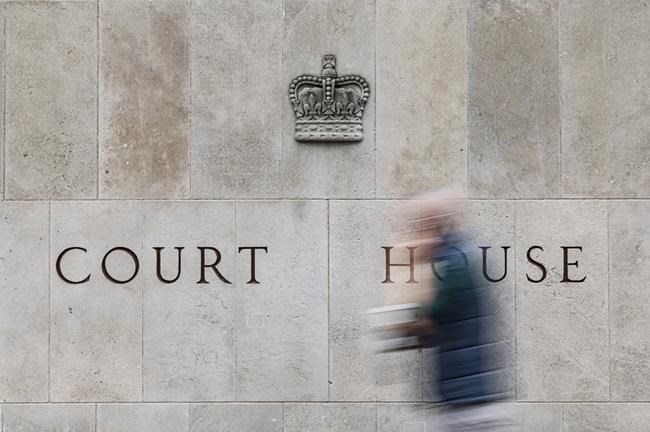TORONTO — The Ontario Superior Court has dismissed a constitutional challenge from seven youth activists who argued the province is discriminating against young people by setting greenhouse gas emissions reduction targets dangerously low, putting their futures at risk.
In a decision issued last week, Justice Marie-Andrée Vermette called the youths — all aged between 15 and 27 — remarkable young people committed to fighting climate change. But while she voiced sympathy about their concerns for the future in light of scientific evidence on the impacts of climate change, she did not find Ontario's policy breached their Charter rights.
"While it would be difficult not to be sympathetic to the concerns expressed by the applicants about their future in light of the evidence filed in this case, this court cannot, based on the current state of the law, find violations of the Charter in this case," she wrote in a 52-page decision.
She found that the young activists made a compelling case that the existential threat of climate change imposes on their Charter rights to life and security, but lay blame with climate change itself, rather than provincial policy.
The lawsuit, backed by Ecojustice environmental lawyers, dates back to 2018 when the newly elected Progressive Conservative government repealed a law from the former Liberal government that had established a cap-and-trade system for reducing emissions. That law had set a target of reducing emissions 37 per cent below 1990 levels by 2030.
The Tories replaced that target with one to reduce emissions 30 per cent below 2005 levels by 2030, which the government argued in court was to balance "a healthy economy with a healthy environment."¬Ý
The revised target will allow for an additional 200 million tonnes of emissions, the youths' experts had said. The lawsuit alleged the "dangerously high level of greenhouse gas emissions" violates sections of the charter on life and security of the person, as well as discrimination based on age.
The Ontario government had previously asked the court to dismiss the lawsuit, arguing against "judicial control over environmental and climate policy." There is no constitutional right requiring a government to take certain actions now to avoid future climate-related harms, government lawyers said in written arguments.
Ontario did not dispute human-caused climate change and its risks to public health, but argued that the province's emissions represent less than one per cent of the global total and is therefore not statistically significant.
Vermette rejected that argument, finding Ontario's inaction to further reduce greenhouse gases is contributing to global warming and is connected to the future hardship the youths may face as a result.
"While Ontario's contribution to global warming may be numerically small, it is real, measurable and not speculative," she wrote. "Every tonne of CO2 emissions adds to global warming and leads to a quantifiable increase in global temperatures that is essentially irreversible on human timescales."
Ecojustice said in a statement that Vermette's ruling still offered optimism as it established Ontario's target falls short of the scientific consensus of what's necessary to confront climate change.¬Ý
She also found the case justiciable, setting a precedent that Canadian courts can hear Charter-based cases that challenge specific laws or state actions, such as climate targets and plans.
The seven youth activists will appeal the decision at the Ontario Court of Appeal, Ecojustice said.
“Around the world, legal challenges are becoming a powerful tool for young people to hold their governments accountable for climate action," said Ecojustice lawyer Danielle Gallant.
"While this decision is disappointing, we remain inspired by the courage and determination of these young applicants to advocate for a better, safer future for us all. We remain behind them to support their fight, to the Court of Appeal and beyond.‚Äù¬Ý
Ottawa-based Alex Neufeldt, one of the young applicants, said Vermette's decision proves the Ford government is causing climate harm that will impact future generations.
"We are the ones who will have to suffer through the tomorrow the Ford government's policies are creating today," said Neufeldt. "That's why, despite this setback, we're continuing our fight to hold the Ford government accountable for climate action."
Andrew Kennedy, spokesman for Ontario's Attorney General, said the provincial government is leading the country's progress on emission reductions through actions that include investing in electric vehicle production and building the largest public transit expansion in Canadian history.
"We are pleased with the decision dismissing the constitutional challenge," said Kennedy, adding it would be inappropriate to comment further due to the case being in an appeal period.
This report by The Canadian Press was first published April 19, 2023.
Tyler Griffin, The Canadian Press




